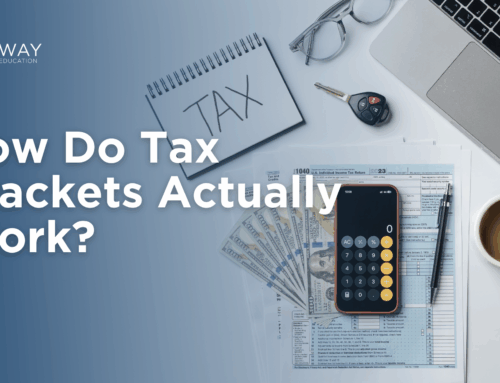Welcome to the gig economy, where the freedom of choosing when, where, and for whom you work is not just a dream, but a reality for millions. This newfound freedom comes with its unique set of challenges, especially when it comes to taxes. The gig economy has transformed the traditional job landscape, offering unparalleled opportunities for income and growth. Whether driving for a ride-sharing service, freelancing online, or juggling multiple side hustles, your contributions drive this dynamic sector forward. However, with great flexibility comes the responsibility of managing your taxes, a crucial aspect of gig work that can often be overlooked.
Understanding Your Tax Obligations
Embarking on the journey of gig work introduces you to a world of autonomy and potential; however, it also brings you face-to-face with the responsibilities of tax obligations. The first step to conquering your taxes is acknowledging a simple truth: all gig income is taxable. Understanding this cornerstone principle is crucial, whether your gig economy income is a side hustle or your full-time gig.
Gig Income is Taxable
No matter how you earn it, if it’s income, it’s taxable. This includes part-time, full-time, or occasional gigs, and yes, even those paid in cash or through peer-to-peer payment platforms like Venmo or PayPal. The IRS expects you to report all these earnings, regardless of whether you receive a Form 1099-NEC (Nonemployee Compensation) or not. Remember, underreporting income can lead to penalties, so keeping meticulous records of your earnings throughout the year is vital.
Self-Employment Tax
When you step into the gig economy, you’re not just an earner; you’re essentially running your own business. This shift brings about the responsibility of paying self-employment taxes covering Social Security and Medicare taxes. Typically, an employer would handle these deductions automatically, but this task falls squarely on your shoulders as a self-employed individual. As of the latest guidelines, the self-employment tax rate stands at 15.3%, which comprises 12.4% for Social Security and 2.9% for Medicare.
Navigating self-employment tax can feel overwhelming, but it’s manageable with the right approach. One silver lining is that you can deduct the employer-equivalent portion of your self-employment tax when calculating your adjusted gross income. This deduction does not reduce either your net earnings from self-employment or your self-employment tax itself, but it does help lower your overall taxable income.
Managing and Reporting Your Income
As a gig worker, managing and reporting your income effectively is paramount. This section will guide you through tracking your earnings from various sources and understanding the forms and documentation required for a seamless tax filing process.
Understanding Forms 1099-NEC and 1099-K
The IRS requires documentation for income, and as a gig worker, you’ll likely encounter Forms 1099-NEC and 1099-K.
- Form 1099-NEC: This form is used by businesses to report payments made to non-employees, such as freelancers and independent contractors. If you’ve provided services totaling $600 or more to a single client, you should expect to receive a 1099-NEC from them. This form makes it straightforward to report your gig income to the IRS.
- Form 1099-K: If you accept payments through third-party networks like PayPal or your business transactions pass a certain threshold, you may receive this form. Recent updates have adjusted the criteria for issuing a 1099-K to capture a broader spectrum of digital transactions. This form reports the total amount of transactions processed, helping the IRS track income that might otherwise go unreported.
It is crucial to have a firm grasp of these forms and ensure you receive them from your clients or platforms. However, even if you don’t receive a 1099 form for your work, you’re still required to report all your income. Keeping your own detailed records becomes indispensable in such cases, as it ensures you can accurately report your earnings and potentially avoid penalties for underreporting.
Tax Deductions and Credits
Navigating tax deductions and credits is like uncovering hidden treasures that can significantly lower your tax bill. Understanding what deductions you qualify for and how to claim them is crucial for gig workers. This section dives into common deductions available and how you can make the most of tax credits.
Common Deductions for Gig Workers
Deductions reduce your taxable income, and as a gig worker, you have several specific deductions available to you. Here are some of the most beneficial:
- Home Office Deduction: If you use part of your home regularly and exclusively for your gig work, you may be eligible for the home office deduction. You can choose between the simplified option (a standard deduction based on the square footage of your office space) and the regular method (based on actual home expenses).
- Mileage and Vehicle Expenses: For those who use their vehicle for gig work, the IRS allows you to deduct either the standard mileage rate for every business mile driven or actual vehicle expenses. Keeping detailed records is essential for claiming this deduction.
- Supplies and Equipment: Purchases that are necessary and ordinary for your gig work, such as computers, software, and office supplies, can be deducted.
- Internet and Phone Expenses: A portion of your internet and phone bills can be deducted, but only the part directly related to your gig work.
- Health Insurance Premiums: If you’re self-employed and pay for your health insurance, you might be able to deduct your premiums, a substantial benefit for many gig workers.
Tax Credits
In addition to deductions, several tax credits can benefit gig workers. Tax credits reduce your tax liability dollar for dollar, making them incredibly valuable. Some to consider include:
- Earned Income Tax Credit (EITC): A benefit for working people with low to moderate income. Eligibility depends on your income level and family size.
- Premium Tax Credit: If you purchase health insurance through the Marketplace, this credit can help make the coverage more affordable.
Quarterly Estimated Taxes
For many gig workers, navigating the landscape of quarterly estimated taxes is a pivotal part of managing their tax responsibilities. Understanding when and how to make these payments is key to avoiding penalties and staying on top of your financial health.
The Importance of Estimated Taxes
When you’re self-employed, the IRS requires you to pay taxes as you earn or receive income during the year. Unlike traditional employees, where employers withhold taxes from each paycheck, gig workers must make these tax payments themselves, typically quarterly. This system ensures that you cover your income tax and self-employment tax obligations gradually throughout the year.
Calculating Estimated Taxes
You’ll need to estimate your adjusted gross income, taxable income, taxes, deductions, and credits for the year to calculate your estimated taxes. The IRS Form 1040-ES includes a worksheet to help guide you through this process. It’s essential to base your estimates on accurate projections to avoid underpaying taxes, which can lead to penalties.
- Step 1: Estimate your total income for the year from all sources.
- Step 2: Deduct your business expenses to find your net profit or loss.
- Step 3: Use your net profit to estimate your income tax and self-employment tax, adding these to find your total estimated tax.
- Step 4: Divide your total estimated tax by four to find your quarterly payment amount.
Remember, if your income significantly changes during the year, you may need to adjust your estimated payments accordingly to either increase or decrease your payments.
Making Payments
Quarterly estimated tax payments are due on the following dates:
- April 15 (for January 1 to March 31)
- June 15 (for April 1 to May 31)
- September 15 (for June 1 to August 31)
- January 15 of the following year (for September 1 to December 31)
Payments can be made online through the IRS Direct Pay system, by phone, or by mail using a check or money order accompanied by the 1040-ES payment voucher.
Avoiding Penalties
To avoid underpayment penalties, ensure your total payments (through quarterly estimated taxes and any withholdings) equal at least 90% of your tax for the current year or 100% of the tax shown on your return for the previous year (110% if your adjusted gross income is more than $150,000).
State Taxes and Local Regulations
After mastering federal tax obligations, gig workers must also navigate the complexities of state taxes and local regulations. Each state has its own rules regarding income tax for self-employed individuals, and some localities may impose additional taxes or regulations. Understanding these nuances is crucial for complete tax compliance.
Navigating State Taxes
- Income Tax Variances: Most states impose an income tax with varying rates and brackets. However, A handful of states do not tax individual income. It’s essential to know your state’s stance on income from gig work and how it impacts your tax liability.
- Filing Requirements: State tax filing requirements can differ from federal regulations. Some states require gig workers to make estimated tax payments, similar to the federal system, while others have different thresholds or rules for when payments are necessary.
- Deductions and Credits: Just as the federal tax code allows for certain deductions and credits, many states offer their own tax benefits that can reduce your taxable income or tax owed. These can include deductions for business expenses or credits for taxes paid to other states.
Understanding Local Regulations
In addition to state taxes, some cities or counties may have local tax laws affecting gig workers. This can include business licenses, occupational taxes, or other regulations designed to govern freelance work within their jurisdictions.
- Business Licenses: Depending on where you live and work, you may need a business license, even as a sole proprietor. Check with your city or county government to understand any licensing requirements.
- Local Tax Obligations: Some localities impose their own taxes on income, sales, or services. Ensuring you’re aware of and compliant with these taxes is crucial to avoid penalties.
- Zoning Laws: For gig workers operating out of a home office, local zoning laws may dictate what type of business activities can occur in your residence. It’s essential to ensure your gig work complies with these regulations.
Staying Compliant
The key to managing state and local taxes effectively is staying informed. Utilize state and local government resources, such as websites or taxpayer assistance centers, to gather accurate and up-to-date information. Here are some steps to ensure compliance:
- Consult State Resources: Most states have a Department of Revenue or Taxation website offering guidance for self-employed individuals and businesses.
- Seek Professional Advice: A tax professional familiar with your state and local tax laws can offer invaluable advice, ensuring you meet all requirements and take advantage of any available tax benefits.
- Join Local Business Associations: Networking with other local gig workers or joining a business association can provide insights into navigating local regulations and staying compliant.
The key takeaway is the importance of being informed, organized, and proactive in managing your tax responsibilities. Remember, thriving in the gig economy goes beyond just excelling at your craft; it’s also about mastering the financial and administrative aspects of your work, including taxes.
Whether you’re looking to deepen your understanding of tax strategies, seeking advice on managing your business finances, or aiming to build a more secure financial future, Pathway Financial Education has something to offer. Take the next step in your financial education journey and discover how to make your gig work more rewarding and financially sustainable.




